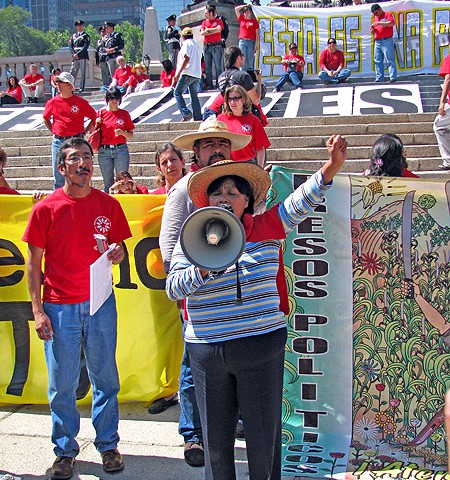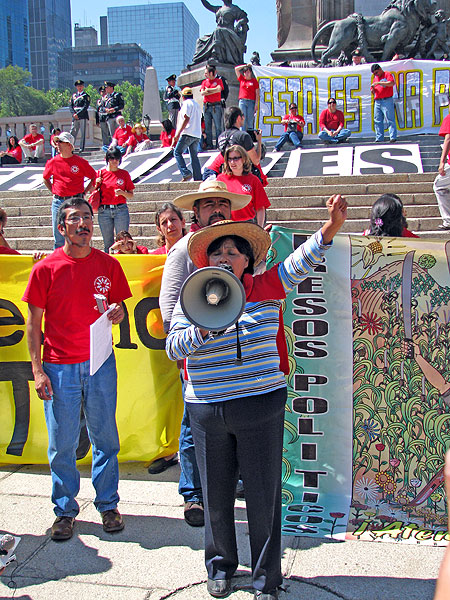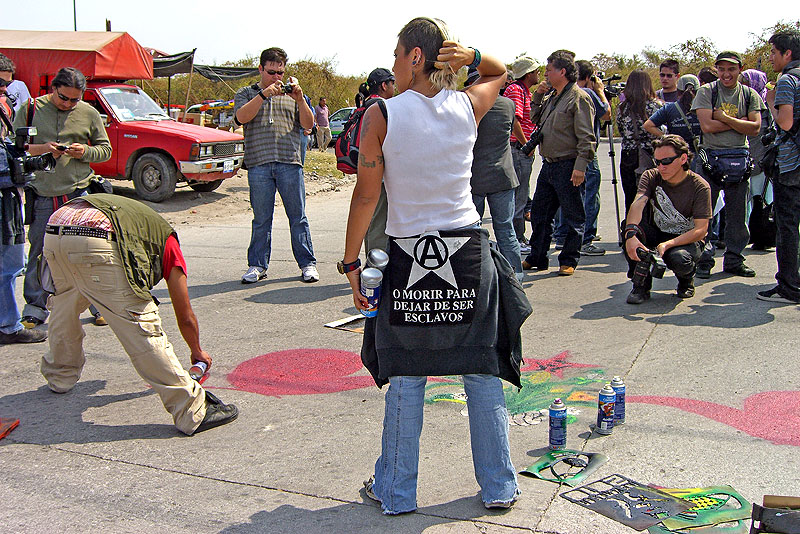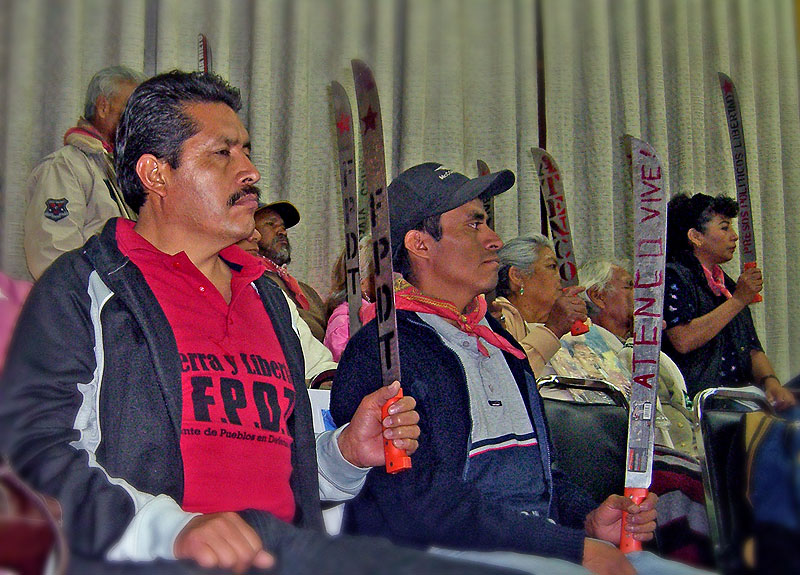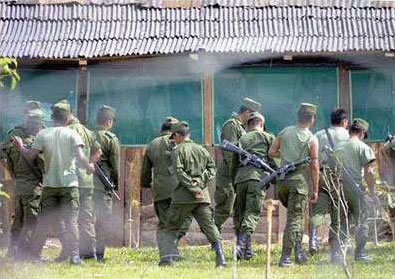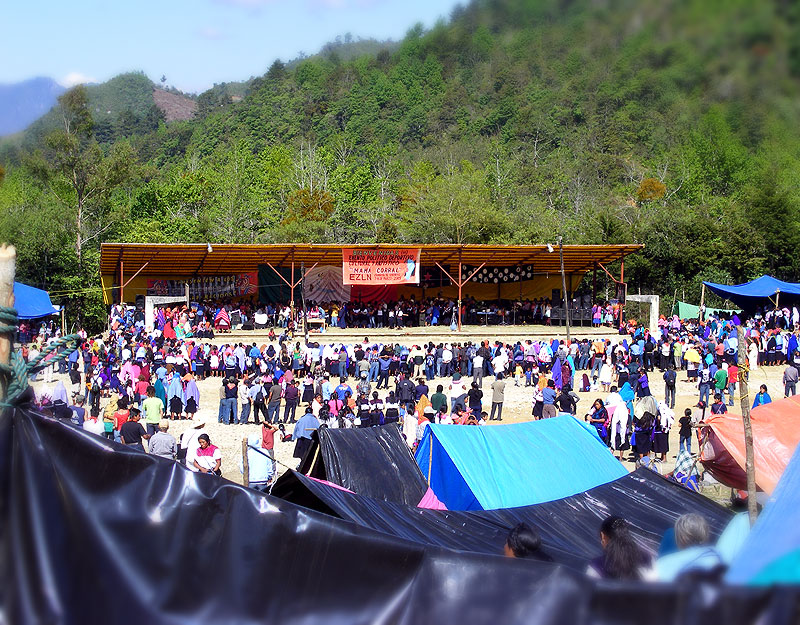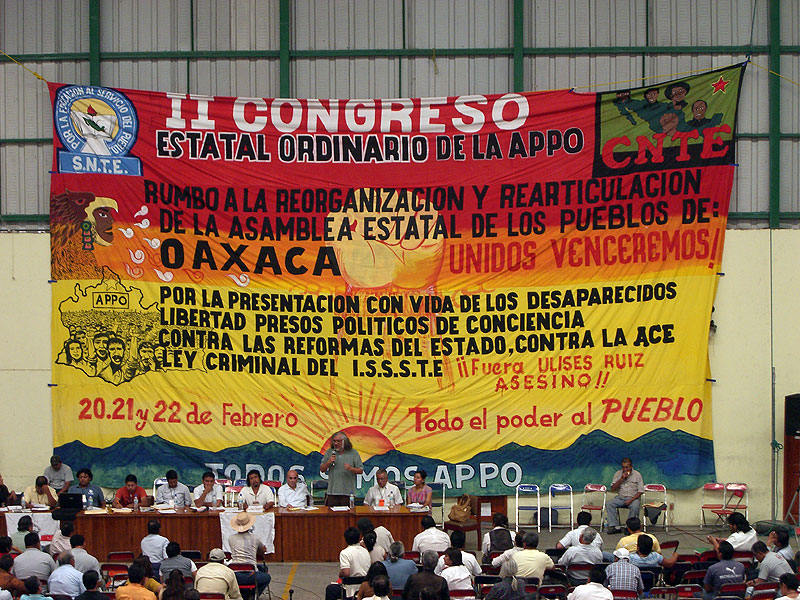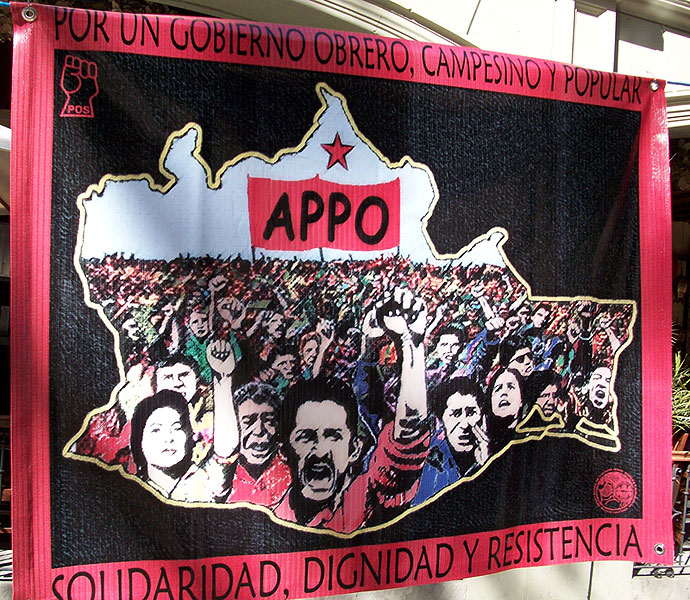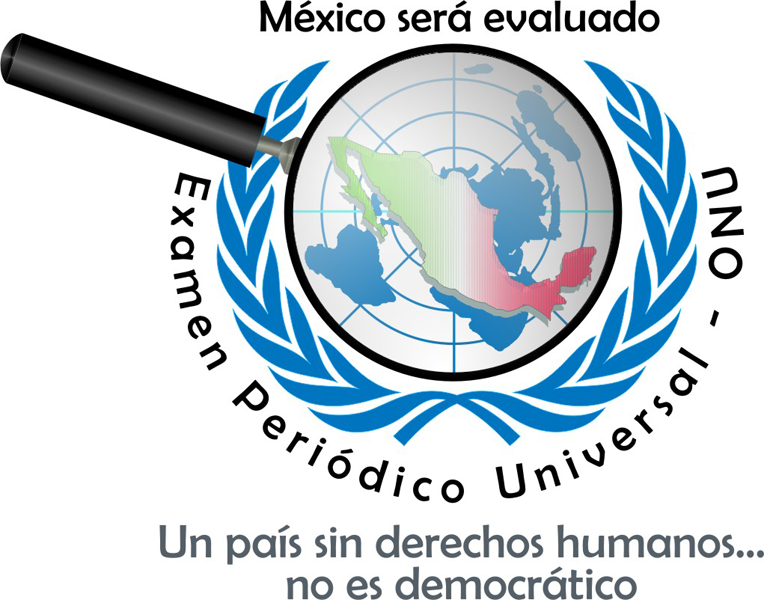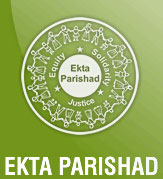
2008
02/01/2009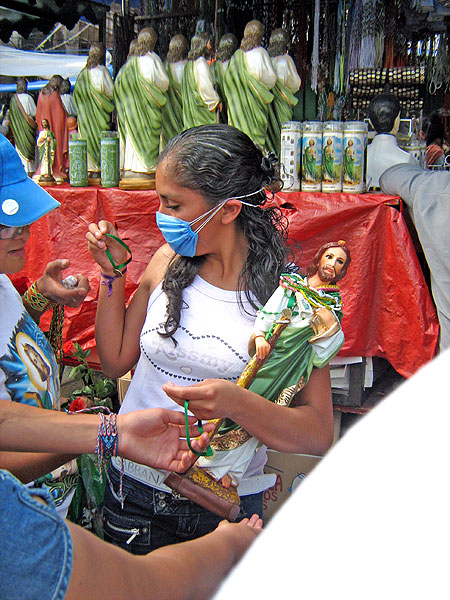
ANALYSIS: Mexico – Of the influenza and other problems
31/08/2009On February 10th, Mexico was evaluated by the United Nations Human Rights Council as part of the Universal Periodic Review (UPR).
The results (see the Focus in this report) have not resolved the crux of the tension between the promotion and defense of human rights, and the clear option taken by the present government since its beginning. For example, on December 12, during the presentation of the National Human Rights Prize, President Felipe Calderón stated that “the main challenge for human rights in Mexico comes from the impunity of criminals and the limitation of the security and justice institutions in the country, or from the frank inability to stop the impunity”. The government perspective focuses entirely on public security, clearly threatened by the growing power of drug-traffickers and organized crime in the country.
On the other hand, the human rights organizations start from a much wider understanding of the growing militarization in Mexico, which is part of the government strategy to fight the drug cartels, and represents a great threat to the human rights of the civil society.
On March 20, six Mexican civil organizations, before the Inter-American Human Rights Commission (IAHRC), presented a report which showed that the number of complaints against the Mexican Army regarding human rights violations was six times higher during the first two years of the government of Calderón. The number of complaints (illegal searches, arbitrary detentions, sexual violations, torture, and in 28 cases, death) which the National Commission on Human Rights (CNDH) received against the Department of National Defense (Sedena) had grown from 182 in 2006 to 1,230 in 2008.
Juan Carlos Gutiérrez Contreras of the Mexican Commission for the Defense and Promotion of Human Rights, AC (CMDPDH) explained: “We have come to this commission to demonstrate the collateral damage that the involvement of the armed forces in the fight against drug-trafficking implies. (…) Part of the problem is that complaints are almost never investigated or are brought before military courts, where the Army becomes the judge, and the impunity continues”. According to the report, in the last two years, the Military Prosecutors Office has indicted less than one out of every 10 open cases against soldiers who have committed crimes against civilians. In addition, there have been no convictions for violations of human rights during the present administration.
In February, the Brigadier General Jaime Antonio López Portillo, the director of Human Rights of the Department of National Defense (Sedena), dismissed these concerns, stating that the behavior of the Armed Forces regarding human rights “is acceptable“, and in spite of the increased military presence in the fight against organized crime (45,000 soldiers deployed daily) “there were few” complaints against soldiers the year before. NGOs rejected his comments by stating that there are no “acceptable” levels when dealing with human rights violations.
One factor which could increase the confusion is the fact that last year and regularly since February of this year, there have been popular protests in various northern states demanding the exit of the Military from public security duties. Nevertheless, various media groups have linked the protests to organized crime, claiming that the buses that the protesters arrived in had been rented and that there was proof that the protesters had been paid.
The militarization in the country is not only related to the deployment of the Army, but also the naming of military members to civil posts or the fact that the National Defense Department has demanded that the states increase the firepower of their police institutions, create or strengthen special anti-kidnapping units, and finance many different public security projects.
The results of the war on drugs remain low to date, in comparison with the human and financial resources that have been invested. According to the Undersecretary for North America of the Department of External Relations, Carlos Rico, Mexico has spent 6.3 billion dollars in the past 2 years fighting organized crime.
A number of media groups have noted that although the Federal Government has claimed in commercials to have detained thousands of presumed criminals, they only manage to bring a few of them to trial. For example, in 2008, only 17% of those detained for public health crimes (drug charges) were brought before a judge. On the other hand, at the end of February, the head of the Attorney General’s Office (PGR), Eduardo Medina Mora, claimed that Operation Clean-up, implemented during the second half of 2008 in order to purge the infiltration of drug traffickers in public security and Federal justice institutions, had concluded with the detention of 25 high officials. This appears to be very limited, when in its annual human rights report, a document that can be considered very conservative, the United States Department of State stated that “impunity and corruption at all levels of government” exists in Mexico, and that a wide range of abuses have been committed against individual guarantees.
International support of the government strategy
As a result of the many human rights violations and the limited results of the war on drugs, a number of countries have pledged to support the government plan to fight organized crime. At the end of the year, as part of the Merida Initiative, the US decided to offer 99 million dollars to Mexico for equipment and technology for the Army and the public security institutions. The amount was less than the promised 116.5 million dollars announced by the Department of External Relations on December 16. In the middle of January, Barack Obama, the President of the US, met with Felipe Calderón. They agreed on the importance of strengthening the bilateral alliance in economic issues, but mostly in terms of security. The US has repeatedly expressed its concern with the growing violence resulting from the war between the Mexican Government and the drug trafficking organizations. As a result of this and the growing economic crisis, the amount of money approved for the Merida Initiative in 2009 was reduced from 450 million dollars to 300 million.
At the beginning of March, Michael G. Mullen, the Chairman of the Joint Military Chiefs of Staff of the US, visited Mexico at the end of a tour of Latin America in which he left clear that for him, Plan Colombia was the model for cooperation between the US and Mexico. In addition, in December, Guatemala proposed a regional militarization in order to fight against organized crime, which was also discussed as part of the Regional Summit in January. At this summit, the Common Front for the fight against Drug-trafficking and Terrorism was formed between Colombia, Panama, Mexico, and Guatemala.
ATENCO: A lost opportunity for the Mexican justice system
In February, a discussion began regarding the report issued by the Supreme Court of Justice of the Nation (SCJN) about the case of Atenco. In spite of the major limitations that derived from the regulations approved by the government in this case, the process had generated major expectations.
The investigation clearly affirmed that in San Salvador Atenco, Mexico State, in May of 2006, hundreds of people suffered abuses and were severely deprived of individual and constitutional rights “to life, personal safety, sexual freedom, gender equality, privacy of their homes, personal freedom, due process, fair treatment of prisoners, and the right to justice.” In addition it established that 2,726 public servants were involved and that their actions were “justified” but “excessive, disproportionate, inefficient, and indolent.”
Nevertheless, the majority of the ministers of the SCJN concluded by condemning as responsible only those police officers who used cruel methods or sexual abuse, as well as the Federal and State level leaders of the operation who permitted the abuses. However the governor of the State of Mexico, the federal secretary of Public Security, and other high level authorities were exonerated of any responsibility.
The International Civil Commission for the Observation of Human Rights (CCIODH) lamented that the report of the SCJN “ended the possibility of justice and contributed once again to the impunity with which the State responds to serious human rights violations, violations which paradoxically have been widely documented by the Court in its investigation”.
After the report of the SCJN, the National and International Campaign for Liberty and Justice for Atenco began. It seeks to involve the civil society in order to pressure the 3 branches of government for the freedom of the 13 prisoners linked to the case of Atenco, their exoneration, punishment for those responsible, as well as ending the criminalization of social protest.
CHIAPAS: the principal conflicts and the present problems
Denunciations of harassments against Zapatista communities continue in two main forms: on one hand, police and military harassment (mainly in the Central and Highland zones in recent months), and on the other hand, aggressions by local groups. At the end of February, the Good Government Council (JBG) at the Zapatistas Central Core base in Front of the World (Oventik) denounced military incursions close to the Caracol, and flyovers of airplanes and helicopters in the region.
In addition, they signaled that indigenous and campesino groups, linked to local powers or the state government, are seeking to wear down the resistance through aggression that could end in violence, such as: occupation of land, robbery or destruction of harvests, etc. The organization most noted in the Northern Jungle continues being the Organization for the Defense of Indigenous and Campesino Rights (Opddic). However, the most recent conflicts have been with the Regional Organization of Coffee-producers of Ocosingo (ORCAO). Noticeably, during the time in which the Festival of Justified Rage was held by the EZLN in Oventik and San Cristobal, members of the ORCAO tried to evict a group of indigenous Zapatistas from 500 hectares of land located in Bosque Bonito (Zapatista autonomous municipality of Che Guevara), resulting in a confrontation which left 5 people injured. At the beginning of March, the JBG of La Realidad denounced that members of the PRD party and members of the Independent Center of Agricultural Workers and Campesinos (CIOAC) of the municipality of Las Margaritas carried out a series of aggressions and provocations against Zapatista support bases located on the ranch of Espiritu Santo. While the names change, the strategy of confrontation against indigenous groups has stayed the same.
Another series of conflicts, related to the “ecotourism centers”, exists in the zone between Ocosingo and Palenque where the Federal and State government have planned projects of tourism development. A number of indigenous communities have sought to retake control of their traditional land rights in Agua Clara, Misol Há, Agua Azul, and other locations.
Other problems are related to the status of Chiapas as a border state. In the middle of January, the Human Rights Center Fray Bartolomé de las Casas (CDHFBLC) condemned an “unjustified” attack by state police in San Cristobal against a group of undocumented immigrants of distinct nationalities, which left a toll of 3 dead and 8 wounded. They denounced that the undocumented immigrants who were captured, were jailed under conditions which violated their rights after being taken to the jail for persons considered probably responsible for a crime.
In February, a group of Central American civil organizations calculated that there have been 800 disappearances of migrants passing through Mexico and they announced the creation of a delegation to investigate their disappearances. At first the Mexican migration officials refused to allow the observers to enter.
Briefs on Oaxaca and Guerrero
As part of the UPR, after almost two years since the conflict took place in Oaxaca, local civil organizations put together a report about the situation of human rights in the state, in which they denounced the impunity, the absence of a judicial response, and the systematic violation of human rights which continues to date. It dealt with advances and problems in the following areas: criminalization of social protest, violations of freedom of expression and the vulnerability of journalists, forced disappearances, violence against women, aggressions against human rights defenders, and the violation of the rights of indigenous peoples.
One of the most discussed cases in recent months, where there seems to be a desire for “justice“, is that of Juan Manual Martínez Moreno, accused of the killing of the US independent journalist Brad Will, who was killed during the social conflict of 2006. Nevertheless, civil and social organizations, as well as the family of Will, have ruled out the possibility that Martínez Moreno is guilty and have mobilized in his favor in various ways. They claim that his detention was suspiciously sped up as part of the negotiations related to the Merida Initiative. Although there are various rumors circulating about the death of Brad Will, the National Commission for Human Rights (CNDH) has publically discounted the government theory. However Martínez Moreno was still detained. He was granted an appeal for legal protection on January 20, but it was overturned by the Attorney General’s Office (PGR) at the beginning of February.
Two other recent cases which seem to illustrate the tendency for more selective attacks (certainly more familiar for observers of the low intensity warfare which we have seen in Chiapas) was the attack on the home of the director of “El Correo de Oaxaca”, as well as the attempted homicide against Ruben Valencia, member of VOCAL (Oaxacan Voices Building Autonomy and Liberty, part of the Popular Assembly of the Peoples of Oaxaca- APPO).
In spite of the aggressions and the fear after the repression, at the end of February, the APPO held it’s Second Congress by convoking neighborhoods, communities, and collectives to organize assemblies, gather its social base, and reorganize the APPO. Among the accords was a clear refusal to recognize any level of government, with which they will only negotiate freedom for prisoners.
In the case of Guerrero, there have been multiple denunciations of forced disappearances which in a matter of days turned from denunciations of incarceration or worse, to death. The paradigmatic example is that of the indigenous Mixteco leaders, Raúl Lucas Lucía and Manuel Ponce Rosas, human rights defenders from the Costa Chica. Their bodies were found on February 22 in Ayutla de los Libres with signs of torture. It had been denounced that they were abducted by armed men who claimed to be police at a public event on February 13 in the municipal seat.
On March 18, an appeal for legal protection was granted to 4 of the 5 members of the Indigenous Me’phaa People’s Organization (OPIM), who have been incarcerated in the municipality of Ayutla de los Libres since April 17 of 2008.
Kerrie Howard, the Americas Deputy Director of Amnesty International stated: “The pattern of killings, attacks, threats, and detentions of human rights defenders in Ayutla has made the region very dangerous for those who defend the rights of the indigenous communities which are the most marginalized in Mexico”.
“National Convention of Municipal Committees of the legitimate government of Mexico“: another organizing force on the national level
On March 22, in Mexico City, Andrés Manuel López Obrador (AMLO), the ex-presidential candidate, led the first “National Convention of Municipal Committees of the legitimate government of Mexico”, in which more than 12 thousand representatives participated. They were invited in order to strengthen the local institutions looking forward to the electoral process of 2012, and to continue to organize for the promotion and defense of the right to vote. Among other goals, there is the objective of gathering, from now until March of 2012, at least 15 million Mexicans. They also suggested the creation of centers of legitimate government (beginning with all the municipalities with more than 100 thousand inhabitants), a national network of communication, and groups working for the defense of the popular economy. At the closing, Marcelo Ebrard, the head of the government of Mexico City, attended and showed his total support for the actions led by AMLO.

